Opinion: School Resource Officer Programs Perpetuate Racist Systems
The implementation of a School Resource Officer (SRO) in Chelsea is heavily debated, and it’s easy to see why. With recent safety incidents bringing the issue back into the spotlight for many students and parents, an important question has been raised: does policing belong in schools? It’s not difficult to understand the perspectives of those who say yes, because, after all, it’s incredibly important for students and parents to view schools as a safe place. Unfortunately, the facts paint a different picture. A majority of SRO success stories are purely anecdotal with the reality for minority students being much harsher.
According to American Civil Liberties Union youth policies counselor Kendrick Washington, “Exacerbating this problem is the fact that certain student groups are policed disproportionately. This is the case for students of color who are arrested or referred to law enforcement at significantly higher rates than their White counterparts” [1].
The numbers add up. A study from the National Prevention Science Coalition shows that “Black students make up 15 percent of the nationwide K-12 student population, but constitute 31 percent of all referrals to law enforcement and 36 percent of all school-based arrests. Conversely, White students constitute 49 percent of the nationwide K-12 population, but only account for 37 percent of referrals to law enforcement and 33 percent of all school-based arrests” [2].
When considering the addition of a SRO, it’s important to remember that the school-to-prison pipeline is a very real thing. Simply put, it’s the idea that students are being exposed to the justice system at a young age due to harsh discipline policies and school policing. Black students are already expelled at a rate that’s 3.5 times as great as their White peers. The presence of SROs only increases the rate at which kids are legally punished for issues that could otherwise be handled by the school administration [3]. Police have directly contributed to several unjust disciplinary incidents; in 2019, a Florida elementary SRO was fired for arresting a 6-year-old Black girl after she had a temper tantrum [4]. This is hardly an isolated incident.
Studies show that Black boys are more likely to be perceived by the police as less innocent than other White students [5]. Putting a police officer in schools would only perpetuate a cycle of racial discrimination, and result in children being taken through systems that will ultimately cause them major psychological harm.
There is little evidence to even show that the presence of an SRO contributes to student safety in a school shooting scenario. A 2018 study shows that one in five SROs claim they don’t even feel equipped to handle that situation [6]. These are unacceptable numbers that paint a truly unflattering portrait of SROs when combined with all of the available data surrounding racial biases in policing and schools.
Studies show that the presence of an SRO could be very harmful to students of color. If one were to be appointed in the Chelsea School District, it is very possible that several students will be negatively affected. Is the district willing to accept this risk, or is there a better solution to ensure student safety that doesn’t involve law enforcement in schools? Either way, the numbers are very clear: an SRO is just another cog in several oppressive systems instead of an actual solution to student safety concerns.
Sources:
- https://www.aclu-wa.org/story/school-resource-officers-when-cure-worse-disease
- https://www.npscoalition.org/post/school-resource-officers-and-racial-disparities-in-school-discipline-and-juvenile-justice-referrals
- https://www.brookings.edu/research/a-better-path-forward-for-criminal-justice-reconsidering-police-in-schools/
- https://www.cnn.com/2022/06/07/us/school-officers-impact-on-black-students/index.html
- https://www.apa.org/news/press/releases/2014/03/black-boys-older
- https://www.edweek.org/leadership/ready-for-a-shooter-1-in-5-school-police-say-no/2018/06
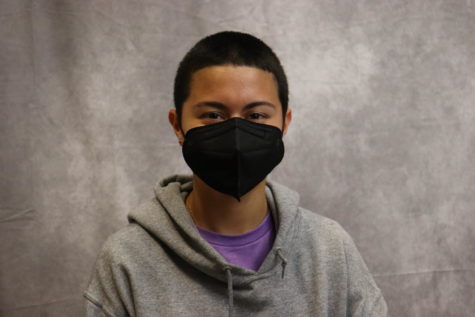
Sofia DeMea is a sophomore at Chelsea. This is their second year writing for the Bleu Print. Apart from journalism, they enjoy participating in sports...

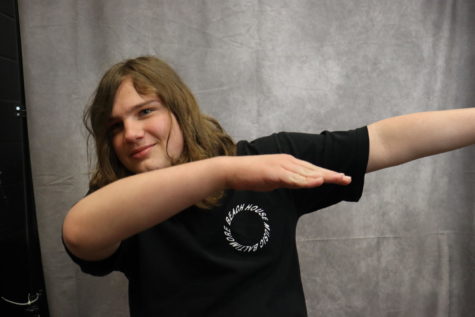
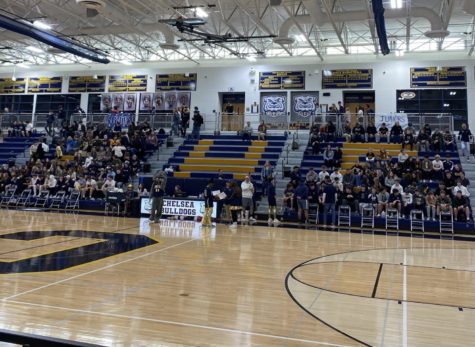
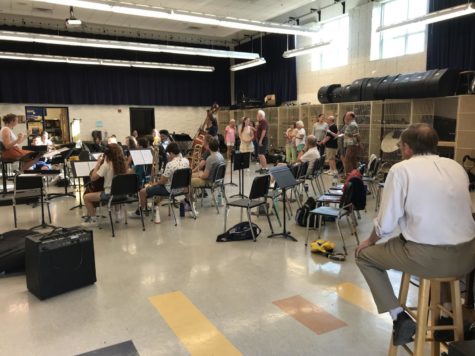
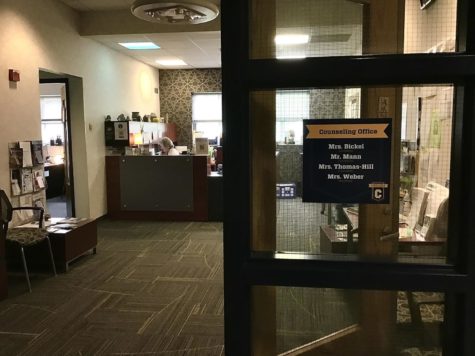

Sophia • May 31, 2023 at 12:30 pm
An Informative and interesting article from Henry. H. Parker
Henry • May 30, 2023 at 12:06 pm
Let get this to number one on trending Henry Nation!!!! ??? ???????